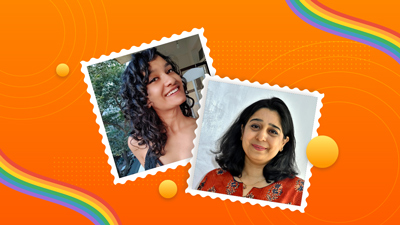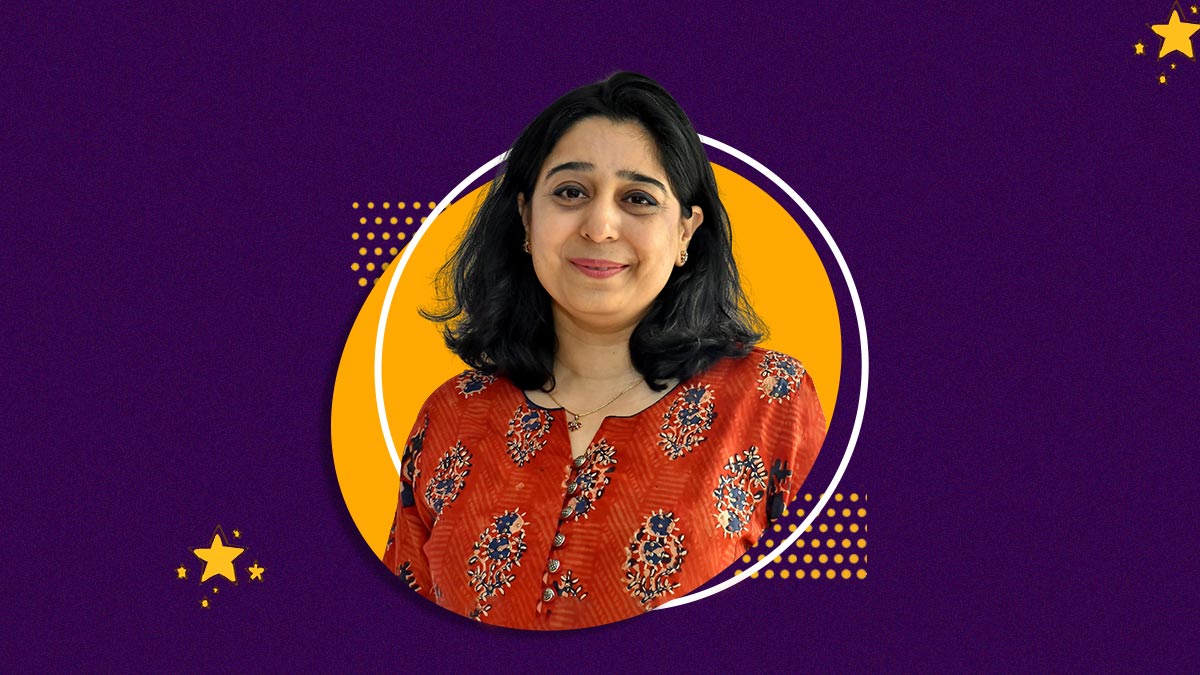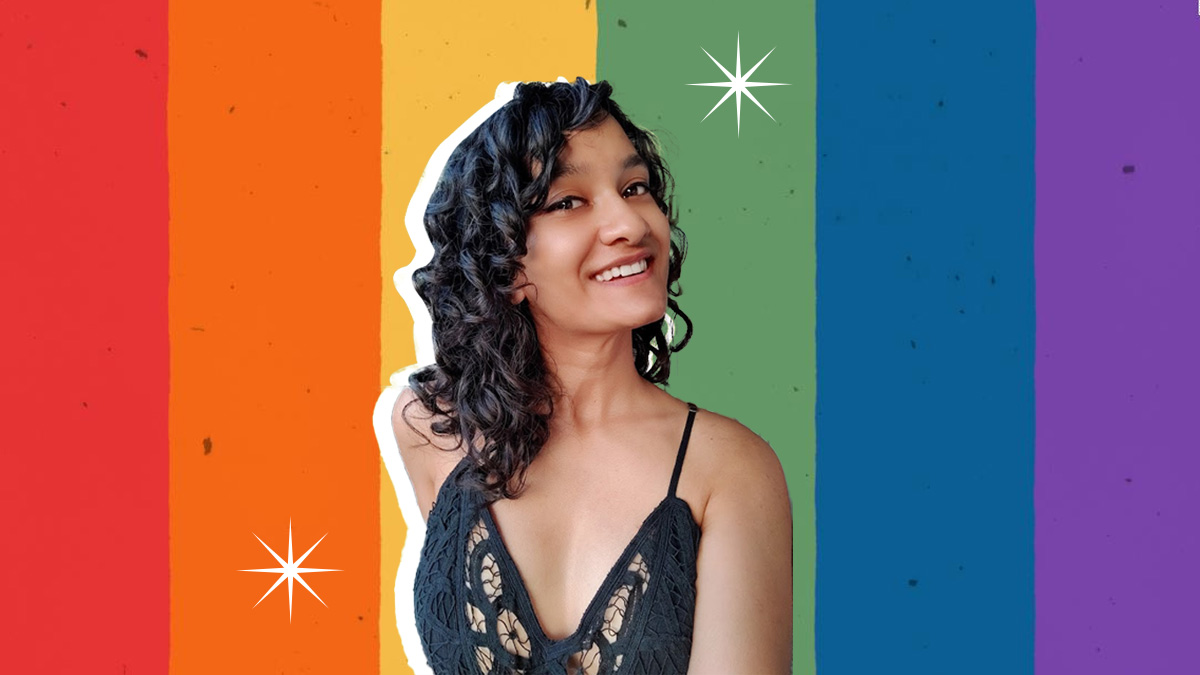
When we speak about sexual or mental health, there are many misconceptions. However, when we speak about the LGBTQIA+ community, misinformation exists on a larger scale. Many people in our society believe that being queer is an illness.
To spread awareness on the subject and shatter myths, we connected with Tanisha RK, sex educator and co-founder of Sangya Project, and Dr Bhavna Barmi, a clinical psychologist.
Here is what the conversation is all about.
Dr Barmi shared her medical expertise and said that being a queer person or identifying with the LGBTQIA+ community is not an illness or a mental disorder. She has come across patients who have low self-esteem or a shaken sense of identity because their loved ones did not accept them for who they are.
“They start experiencing trust issues, which results in elevated interpersonal struggles. They cannot trust, accept, and respect others.” They start isolating themselves from others. They feel inadequate and start avoiding social gatherings and family functions. If a person struggles with them for long, the feelings start manifesting themselves as anxiety or depression.
While speaking about how loved ones can extend their support towards a person feeling comfortable about sharing their gender identity and sexual orientation, Dr Barmi said, “Coming out can be a challenge for a queer person.”
She shared a few ways in which families and friends can be supportive:

Sharing her expert point of view on the mental and emotional trauma that queer people experience while facing rejection and stereotypical societal norms, Dr Barmi advised,
Dr Barmi advised people to seek professional help without fear of judgement. “It is not a sign of weakness, it is a sign of strength,” she added.
As Tanisha joined us, they shared that being queer is normal. While our society believes that a person would have a different sexual orientation just because they had a bad experience, it does not happen like that. The sex educator said, “You cannot help who you are attracted to.”
They added that though the progress is slow, the dialogue around the acceptance of the LGBTQIA+ community is improving. Dr Barmi added, “Everybody deserves to have a preference in their lives, and it must be respected.”
She said that a few parents have approached her to write prescriptions for their kids who identify with the LGBTQIA+ community. She often asks them, “What pill did you take when you expressed your sexual identity?”

Speaking about HIV-AIDS and how our society puts the onus on the LGBTQIA+ community that they are spreading it, Dr Barmi once and for all clarified that the infection only spreads with the exchange of bodily fluids.
We were discussing a report published by the Centres for Disease Control and Prevention (CDC), that pointed out a disproportionate number of gay and bisexual men being affected by the infection in the US. While such kind of data is difficult to find in India, Dr Barmi said that one of the reasons why the data is represented like that is because people from the queer community could not openly live their lives as they deemed fit. She added that they might have to resort to unsafe ways when they engaged in sexual activities.
Tanish clarified that historically these studies have samples taken from sex workers and people who identified as gay or indulged in anal sex. Most of these people had limited to nary access to condoms and affordable healthcare. They could not practise safe sex or used to indulge in intimate activities that were likely to lead to injuries.
Because of their conditions, these people were more eager to get their blood tests done, and scientists were able to identify how the HIV virus spreads.
But if we talk about today, Tanisha said that we do not address the issue of sex and that workers and people from the LGBTQIA+ community are subjected to abuse at an alarmingly high rate or are more vulnerable to experiencing rougher sex without protection.
They added that it affects how we talk about the diseases and how easy it becomes to spread misinformation about communities that are already vulnerable. “HIV does not care what your identity is,” they added.
They also said, “Blaming one community only shows us who needs immediate access to healthcare.” It does not mean that they are single-handedly the carriers of a virus.
All of us are vulnerable, therefore, we must not avoid using condoms to prevent the transfer of bodily fluids during sex.
Don't Miss: Taking A Stand: How To Be An Effective LGBTQ Ally
Our experts opened up about common misconceptions they have heard while being mental health experts and sex educators. Dr Barmi shared that many people believe that people with mental health conditions cannot have a fulfilling sex life, and sexual problems only arise due to physical health issues.
She added that issues in one’s sex life can be psychological, and therapy can be helpful in both cases. One of the most absurd myths she heard was that people from the queer community can be identified with certain mannerisms, and one’s sexual preferences or gender identity can be ‘cured’ with medication.
Tanisha said that people establish a direct link that if a person is queer, they would be suffering from anxiety and depression (How To Help Someone With Depression). However, they fail to understand that it is their treatment of LGBTQIA+ people that is the cause behind their suffering from mental health issues.
They also added that because many parents believe that being a queer person is an illness, they send their kids to conversion therapy. They added, “It does not work because you cannot make a straight person gay or a gay person straight.” Tanisha shared that many lives have been lost when people have attempted to ‘correct’ the identity or sexual preference of their child.
“If people are worried about the mental health of the queer community, do not try to fix the queer part but ask yourself how you are making our lives a little darker,” they added.
Tanisha also talked about the fact that many people assume someone’s pronouns and gender identity just by looking at them. They added that it can put a person, especially transgender people, in a place where they would have to share their medical history and intimate information, which they might not be comfortable with and do not have to.
While one can ask about a person’s pronoun, one should refrain from going into details about one’s personal preferences. “If a trans-woman tells you she is a woman, she is a woman,” they added. However, they encouraged partners to have a conversation around pleasure and intimacy.
Don't Miss: The Top 5 Must-Watch Movies For A Memorable Pride Month
While our society has come a long way, we still have to cover a greater distance when we talk about healthcare and the rights of the LGBTQIA+ community.
Stay tuned to HerZindagi for more stories.
HerZindagi Pride Month: Redefining narratives, fostering awareness and a world of inclusion with thought-provoking stories around LGBTQIA. Get more awareness about LGBTQIA (Pride Month) by reading inspiring stories that will help you to open up without hesitation. #LivingWithPride
Our aim is to provide accurate, safe and expert verified information through our articles and social media handles. The remedies, advice and tips mentioned here are for general information only. Please consult your expert before trying any kind of health, beauty, life hacks or astrology related tips. For any feedback or complaint, contact us at [email protected].